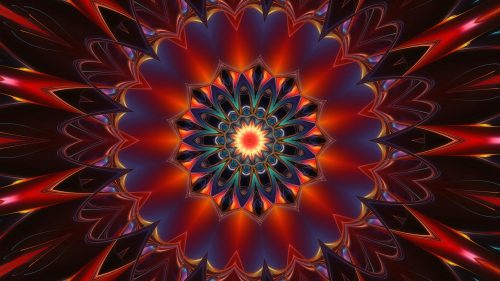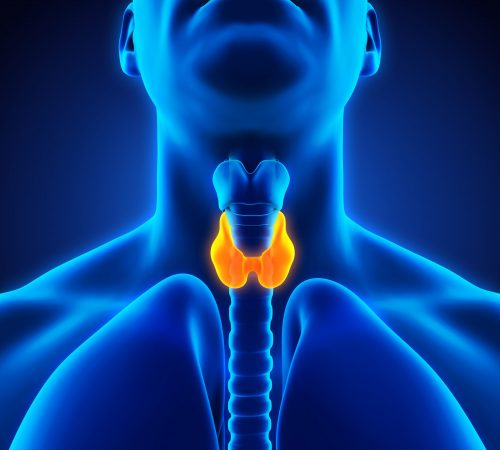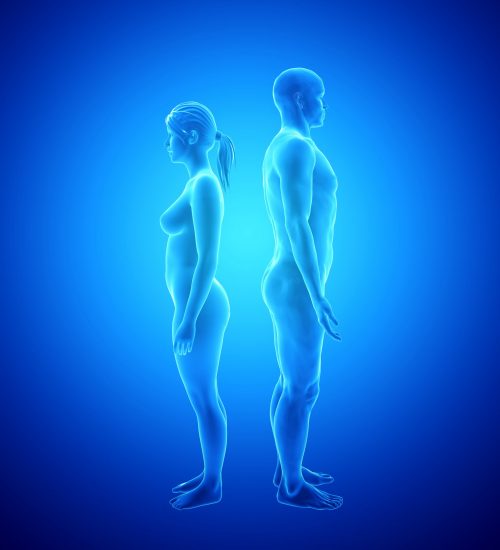Sex Hormones & Depression: A Part Of The Puzzle

It’s the age-old question… What came first, the chicken or the egg? Let me rephrase this, depression or hypogonadism? We know that there’s a strong link between the two; hypogonadism can increase the risk of depression, and depression can increase the risk of hypogonadism. It’s one that needs more attention, especially as depression is multi-factorial and we are still learning more about it.
I’m not anti-antidepressants; medical drugs are essential in medicine, including anti-depressants. In 2018 alone, a total of 70.9 million prescriptions for antidepressants were issued in England 1. This figure is growing, and that’s only England. Thus, I want to elaborate on this topic a bit more with this blog, as anti-depressants are very much handed out a lot like ‘free candy’, without full consideration of plausible secondary causes, including hypogonadism. So, let’s try understanding how hypogonadism and depression link, and what else links to depression.
What Is Depression?
I remember hearing the word buzz about as a child on TV, the radio, and among other adults talking. This understanding grew to evolve as I was in secondary school, morphing into every teenager’s idea of depression. It becomes common place in our language, such as in response to certain questions; “Oh, that’s a bit depressing”, or “today’s been a bit depressing”. The general public’s understanding of the topic seems to be mixed. In some cultures it appears as though it’s absent, that there’s a disbelief that one can be depressed. I’ve seen this in my own maternal motherland (India). Still, we’re understanding depression increasingly better, and more cultures are coming to terms with it being a reality. The truth is, we can make as many descriptions as we want for it, but until we’ve experienced it, it’s hard to fully explain.
What medicine defines as depression is more complex than just being sad. Not everyone experiences consistent symptoms, or even the same symptoms. The NIH list the following symptoms, which are typically experienced for at least two weeks 2:
- Persistent sad, anxious, or “empty” mood
- Feelings of hopelessness, or pessimism
- Irritability
- Feelings of guilt, worthlessness, or helplessness
- Loss of interest or pleasure in hobbies and activities
- Decreased energy or fatigue
- Moving or talking more slowly
- Feeling restless or having trouble sitting still
- Difficulty concentrating, remembering, or making decisions
- Difficulty sleeping, early-morning awakening, or oversleeping
- Appetite and/or weight changes
- Thoughts of death or suicide, or suicide attempts
- Aches or pains, headaches, cramps, or digestive problems without a clear physical cause and/or that do not ease even with treatment
The pathophysiology of depression is also complex, ranging from obvious life event triggers, excessive stress and subsequent ‘burn out’, to genetic influencers. In fact, the likelihood of heritability for some bipolar (manic depressive) disorders is as high as 80% 3. Even the genetics of depression (both uni and bipolar – unipolar is classical depression, without the manic highs as seen in bipolar). Those with mutations in the serotonin (5-hydroxytryptamine [5-HT]) transporter and serotonin receptors tend to show either increased or decreased tendencies towards unipolar depression 4–6. This appears to be more apparent in women than in men too, where genetics appears to play a higher role in women with depression 7.
The biochemical basis is also complex, and incredibly interesting. I will keep this brief and away from molecular biology. The first major hypothesis for unipolar depression was the monoamine hypothesis, which suggests that depression symptoms arise due to a deficiency of the brain’s monoaminergic neurotransmitters. That is, norepinephrine (NE), 5-HT, and/or dopamine (da). Mania, ie. hyper state, is caused by an excess of these monoamines, which is something we notice in certain drug use, ie. cocaine, or with certain addictions such as gambling (when someone wins) 8,9. But further studies do show that it’s not solely related to the depletion of monoamines 10. It does get more complex than this, but the take home message is that for the most part, there is usually a chemical imbalance of sorts, or a lack of receptor functionality for the neurotransmitters.
How is it normally treated? Antidepressants of course! This includes tricyclic antidepressants (TCAs) and Monoamine oxidase inhibitors (MAOIs), which increase the concentration of 5-HT and/or NE. Indeed, they have been effective in alleviating symptoms of depression in many patients, but undesirable side effects do exist. TCAs act on many other transmitter systems in the CNS, in addition to important systems such as the histaminergic system 11 (you’ll be extremely familiar with histamines if you have pollen allergies, have had bad insect stings, local infections, or supplement too much beta alanine). This can lead to sedation, hypotension, blurred vision, dry mouth, amongst other side effects. It can even be fatal in overdosing due to the cardiovascular effects 12.
Selective serotonin reuptake inhibitors (SSRIs) have proven to be successful where altered serotonergic transmission has been assumed. This includes anxiety, panic or obsessive-compulsive disorders 11. Newer antidepressants exist for more specific targeting of certain neurotransmitters and while side effects have been reduced, severe side effects still exist. What you need to know is that antidepressants certainly have their place when prescribed under appropriate settings. This includes a full assessment to determine the nature of the depressive disorder and thus which antidepressant is the most appropriate to use. It isn’t to be taken lightly and SSRIs, TCAs and MOAIS, in addition to other antidepressants, shouldn’t be handed out like free chocolate.
Can Depression Cause Hypogonadism?
Before answering this question, let’s have a look at the general association evidence between depression and testosterone.
In depressed patients, we observe a greater risk of metabolic syndrome and large waist circumference, known to be high risk factors for hypogonadism 13. Among older men (mean age of 70 ± 7.7 years) in Iran, there appears to be a significant inverse correlation between testosterone levels and the number of depressive symptoms they had, when adjusted for various factors 14. A systematic review and meta-analysis suggested that TRT has an antidepressant effect among those with hypogonadism 15. This is further reinforced by a later study 16. Clearly, testosterone has an anti-depressant effect, and we certainly note increased incidence of hypogonadism in those with depression 17.
So, can depression cause hypogonadism or lower testosterone? The problem with association studies is that all they tell you is whether an association may or may not exist in a certain population. It’s obvious that in hypogonadal men, there is an increased incidence of depression and that testosterone treatment can alleviate it.
What we can argue is that those with depression often do have appetite and weight changes, in addition to increased sedentary behaviour. Combine this with potentially poorer food choice, either excess food intake or far too little food intake, the risk of hypogonadism increases greatly. I touched upon this topic in my previous blog with all the relevant cited studies.
In any case, it’s important to be treating depression. Knowing the cause of it is often incredibly helpful to finding the best treatment, hence why I’ve talked about this. Knowing whether depression has indirectly caused hypogonadism, as opposed to hypogonadism inducing depression symptoms, will help determine if TRT is necessary. This becomes an easier assessment to make it there are obvious clinical indicators of metabolic diseases such as overweight/obesity, type 2 diabetes mellitus, and other disorders.
The Sex Hormone – Mental Wellbeing Link
I’ve given you the stats and facts; there is an association between testosterone and depression. The same is actually true of oestrogen, both in men and women 18. Evidence is clear that relationships between higher oestrogen equates to improved cognitive performance in men and reduced depressive symptoms in general 19–23. Likewise, dihydrogen testosterone (DHT) is well linked to improved mental wellbeing too. DHT is a metabolite of testosterone 24. It is indeed accepted that a decrease in testosterone contributes to the pathogenesis of depression 25.
But no, this doesn’t mean that having supraphysiological testosterone and oestradiol will equate to bringing you to the 5th dimension of happiness. The improvement in mental well being is seen within physiological levels, especially when compared to hypogonadism or lower testosterone/oestradiol.
Now onto the neurobiology bits… (WARNING – Skip to the next section if you don’t feel comfortable with the idea of reading neurobiology, as this does go into some detail).
Testosterone is in-fact a prohormone in the brain; it’s converted into either DHT or oestradiol, to act upon androgen and oestrogen receptors (AR/ER), respectively. This of course causes sexual differentiation of the brain 26. Progesterone can antagonise actions at both AR and ERs in the brain. Oestrogen promotes neurotrophic synthesis, modulates cholinergic and dopaminergic neurotransmitter systems, and protects the brain against stress and inflammation 27. It also elevates serotonin and modulates serotonin receptor distribution. Why? Because oestradiol increases the production of tryptophan hydroxylase, which is the rate limiting step in the synthesis of serotonin from tryptophan, thus increasing serotonin concentrations. Additionally, it inhibits the expression of the serotonin reuptake transporter (SERT) gene and acts as an antagonist at SERT, resulting in promoting the actions of serotonin due to increasing the length of time it remains available within synapses and the interstitial space of the brain 28–30.
Oestradiol also upregulates 5HT2A (a serotonin receptor) in the brain 28. Taken together, these effects will ultimately cause an anti-depressive effect. This is true of the oestradiol that testosterone converts to in the brain of males too. The brain has significant expression of SRD5A (5α-reductase), which converts Testosterone to DHT, thus clearly indicating that there are local, tissue-specific effects of DHT on cognition and mood. We understand that DHT treatment promotes the expression of synaptic plasticity markers and positively modifies synaptic structures. What this means is that DHT promotes good synaptic health, important in preventing diseases such as Alzheimer’s 31. We know that Mesterolone (Proviron) also alleviates depression symptoms in men with less side effects than amitriptyline (tricyclic anti-depressant) 32. This suggests that testosterone and androgens act as central MAOIs too 32. The neurobiology gets more complex, interesting, but too in-depth for this blog.
Is Testosterone The Cure? Recommendations For Patients & Clinicians.
I may have made testosterone and synthetic androgens sound as if they can replace many anti-depressants. This is not the case, as each individual medical case requires its own investigation. The cases where TRT is a candidate for alleviation of depressive symptoms is when the patient is indeed hypogonadal.
There are questions to ask yourself or, if you’re a clinician, the patient. These include the following:
- Are there any comorbidities that could be contributing to hypogonadism, such as obesity and/or a sedentary lifestyle? Is this rectifiable?
- Is the patient within BSSM guidelines for physiologically normal testosterone, and is their oestradiol and DHT normal?
- How are the patient’s metabolic markers? Can they be resolved by natural means in a timely fashion?
- Can any cases of hypogonadism be reversed by natural means and is an anti-depressant necessary at this stage?
- Can the patient make enough alterations through other intervention methods to treat depression, including Cognitive Behavioural Therapy (CBT)?
- Is the cause of unipolar depression in this case life-event related, ie. post traumatic? If so, therapy is important.
A clinician must get to the bottom of why a patient has unipolar depression and how it can be rectified. If they are overweight and obese, then some lifestyle intervention is necessary. If they are failing to lose weight with no increase in serum sex steroid hormones, then perhaps hypogonadism needs investigating and TRT may be a suitable choice of treatment. However, if no metabolic disorders exist, please see if it’s possible to treat the patient by means of therapy and other interventions before immediately jumping the gun on antidepressant drugs. They have their place in medicine and are indeed useful, but they should be a last resort unless the patient is facing suicidal thoughts and there is reasonable suspicion that they may harm themselves or others. More medical intervention becomes necessary. We don’t want to put patients off from going to a doctor thinking that they won’t get help, but we need to rely less on drugs that have potentially severe side effects too. So, patients, please consider your options too. Discuss this with your doctor further and perhaps trial therapy.
Conclusions
Depression is a devastating state. Its causes are multifactorial and complex. It also shares a very well linked but complex relationship with sex hormones, in addition to many other endocrinal systems. Antidepressants are not to be taken lightly as ‘candy pez’ given at will. Careful consideration is necessary, with a full review of clinical symptoms and blood work.
References
- Jump in antidepressant prescriptions in England – BBC News. https://www.bbc.co.uk/news/health-47740396. Accessed June 27, 2020.
- NIMH » Depression. https://www.nimh.nih.gov/health/topics/depression/index.shtml. Accessed June 28, 2020.
- Berrettini WH. Molecular linkage studies of bipolar disorders. Bipolar Disord. 2001;3(6):276-283. doi:10.1034/j.1399-5618.2001.30603.x
- Souery D, Rivelli SK, Mendlewicz J. Molecular genetic and family studies in affective disorders: State of the art. J Affect Disord. 2001;62(1-2):45-55. doi:10.1016/S0165-0327(00)00350-5
- L W Ho, R A Furlong, J S Rubinsztein, C Walsh, E S Paykel DCR. Genetic Associations With Clinical Characteristics in Bipolar Affective Disorder and Recurrent Unipolar Depressive Disorder – PubMed. doi:10686549
- Lerer B, Macciardi F, Segman RH, et al. Variability of 5-HT2C receptor cys23ser polymorphism among European populations and vulnerability to affective disorder. Mol Psychiatry. 2001;6(5):579-585. doi:10.1038/sj.mp.4000883
- Kendler KS, Gardner CO, Neale MC, Prescott CA. Genetic risk factors for major depression in men and women: Similar or different heritabilities and same or partly distinct genes? Psychol Med. 2001;31(4):605-616. doi:10.1017/S0033291701003907
- Coppen A. The biochemistry of affective disorders. Br J Psychiatry. 1967;113(504):1237-1264. doi:10.1192/bjp.113.504.1237
- Schildkraut JJ. The catecholamine hypothesis of affective disorders: a review of supporting evidence. Am J Psychiatry. 1965;122(5):509-522. doi:10.1176/ajp.122.5.509
- Brigitta B. Pathophysiology of depression and mechanisms of treatment. Dialogues Clin Neurosci. 2002;4(1):7-20. http://www.ncbi.nlm.nih.gov/pubmed/22033824. Accessed June 28, 2020.
- Feighner JP. Mechanism of Action of Antidepressant Medications – PubMed. J Clin Psychiatry. 1999:4:4-11. https://pubmed.ncbi.nlm.nih.gov/10086478/. Accessed June 28, 2020.
- Glassman AH, Shapiro PA. Depression and the course of coronary artery disease. Am J Psychiatry. 1998;155(1):4-11. doi:10.1176/ajp.155.1.4
- Dunbar JA, Reddy P, Davis-Lameloise N, et al. Depression: An important comorbidity with metabolic syndrome in a general population. Diabetes Care. 2008;31(12):2368-2373. doi:10.2337/dc08-0175
- Kheirkhah F, Hosseini SR, Hosseini SF, Ghasemi N, Bijani A, G Cumming R. Relationship between testosterone levels and depressive symptoms in older men in Amirkola, Iran. Casp J Intern Med. 2014;5(2):65-70. http://www.ncbi.nlm.nih.gov/pubmed/24778779. Accessed April 4, 2020.
- Zarrouf FA, Artz S, Griffith J, Sirbu C, Kommor M. Testosterone and depression: systematic review and meta-analysis. J Psychiatr Pract. 2009;15(4):289-305. doi:10.1097/01.pra.0000358315.88931.fc
- Jung HJ, Shin HS. Effect of Testosterone Replacement Therapy on Cognitive Performance and Depression in Men with Testosterone Deficiency Syndrome. World J Mens Health. 2016;34(3):194. doi:10.5534/wjmh.2016.34.3.194
- Mohit Khera. Patients With Testosterone Deficit Syndrome and Depression – PubMed. Arch Esp Urol. 2013;66(7):729-736. doi:10.1037//0735-7044.110.3.613
- Grigoriadis S, Kennedy SH. Role of estrogen in the treatment of depression. Am J Ther. 2002;9(6):503-509. doi:10.1097/00045391-200211000-00008
- Senanarong V, Vannasaeng S, Poungvarin N, et al. Endogenous estradiol in elderly individuals: Cognitive and noncognitive associations. Arch Neurol. 2002;59(3):385-389. doi:10.1001/archneur.59.3.385
- Hogervorst E, De Jager C, Budge M, Smith AD. Serum levels of estradiol and testosterone and performance in different cognitive domains in healthy elderly men and women. Psychoneuroendocrinology. 2004;29(3):405-421. doi:10.1016/S0306-4530(03)00053-2
- Muller M, Schupf N, Manly JJ, Mayeux R, Luchsinger JA. Sex hormone binding globulin and incident Alzheimer’s disease in elderly men and women. Neurobiol Aging. 2010;31(10):1758-1765. doi:10.1016/j.neurobiolaging.2008.10.001
- Carlson LE, Sherwin BB. Steroid hormones, memory and mood in a healthy elderly population. Psychoneuroendocrinology. 1998;23(6):583-603. doi:10.1016/S0306-4530(98)00025-0
- Kampen DL, Sherwin BB. Estradiol is related to visual memory in healthy young men. Behav Neurosci. 1996;110(3):613-617. doi:10.1037/0735-7044.110.3.613
- Traish AM, Mulgaonkar A, Giordano N. The dark side of 5α-reductase inhibitors’ therapy: Sexual dysfunction, high gleason grade prostate cancer and depression. Korean J Urol. 2014;55(6):367-379. doi:10.4111/kju.2014.55.6.367
- Celec P, Ostatníková D, Hodosy J. On the effects of testosterone on brain behavioral functions. Front Neurosci. 2015;9(FEB). doi:10.3389/fnins.2015.00012
- McEwen BS. Diversity of Steroid Hormone Actions on the Brain. 1999. https://www.ncbi.nlm.nih.gov/books/NBK28103/. Accessed June 29, 2020.
- Gurvich C, Hoy K, Thomas N, Kulkarni J. Sex differences and the influence of sex hormones on cognition through adulthood and the aging process. Brain Sci. 2018;8(9). doi:10.3390/brainsci8090163
- Rybaczyk LA, Bashaw MJ, Pathak DR, Moody SM, Gilders RM, Holzschu DL. An overlooked connection: Serotonergic mediation of estrogen-related physiology and pathology. BMC Womens Health. 2005;5:12. doi:10.1186/1472-6874-5-12
- Bethea CL, Mirkes SJ, Shively CA, Adams MR. Steroid regulation of tryptophan hydroxylase protein in the dorsal raphe of macaques. Biol Psychiatry. 1999;47(6):562-576. doi:10.1016/S0006-3223(99)00156-0
- Bethea CL, Gundlah C, Mirkes SJ. Ovarian steroid action in the serotonin neural system of macaques. Novartis Found Symp. 2000;230:112-133. doi:10.1002/0470870818.ch9
- Swerdloff RS, Dudley RE, Page ST, Wang C, Salameh WA. Dihydrotestosterone: Biochemistry, physiology, and clinical implications of elevated blood levels. Endocr Rev. 2017;38(3):220-254. doi:10.1210/er.2016-1067
- Frati P, Kyriakou C, Rio A, et al. Smart Drugs and Synthetic Androgens for Cognitive and Physical Enhancement: Revolving Doors of Cosmetic Neurology. Curr Neuropharmacol. 2014;13(1):5-11. doi:10.2174/1570159×13666141210221750


